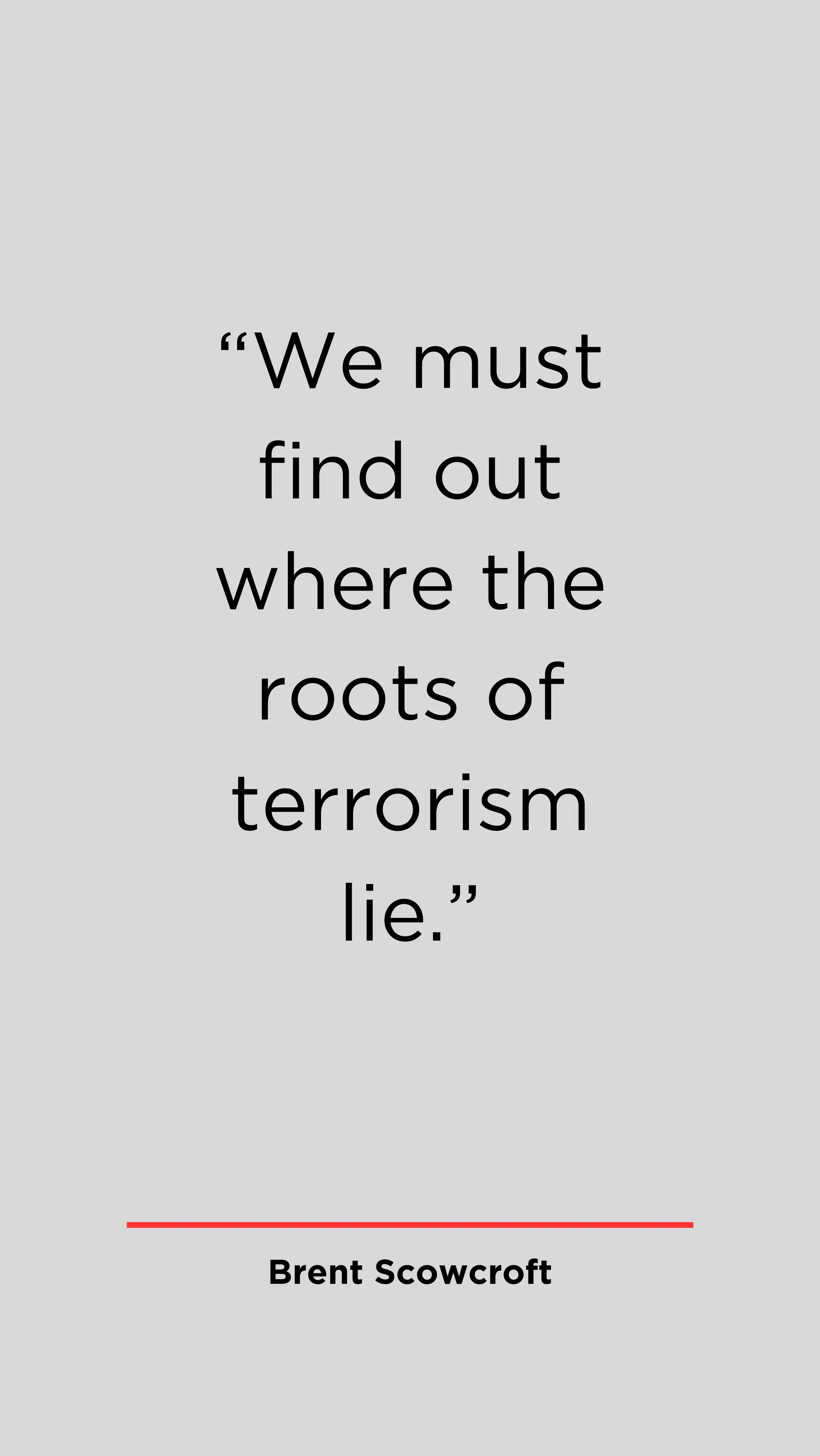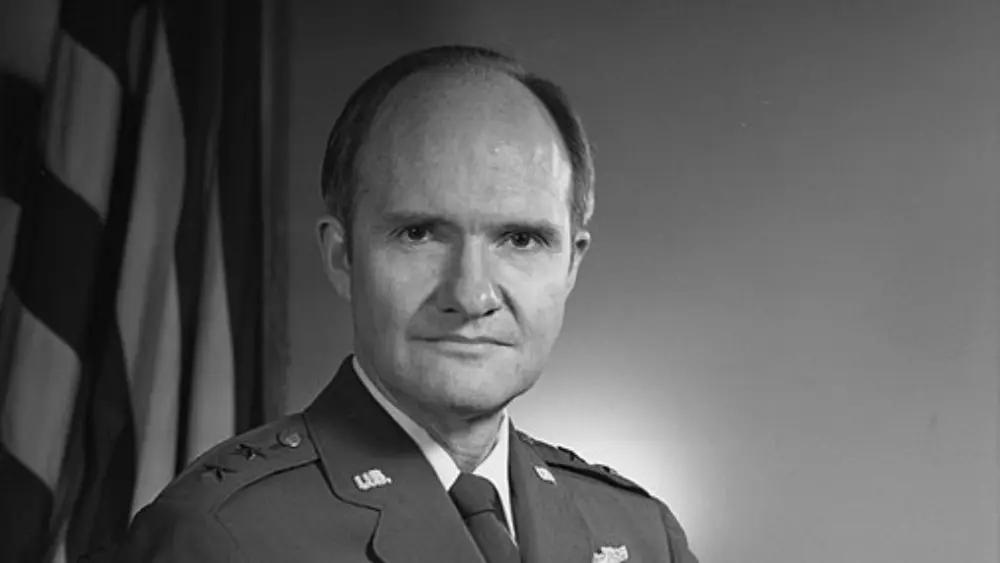Brent Scowcroft, born on March 19, 1925, in Ogden, Utah, was a pivotal figure in American foreign policy and national security. Serving as the National Security Advisor to two U.S. Presidents, Scowcroft played a crucial role in shaping the nation’s responses to global challenges during a period marked by the end of the Cold War and the complexities of the post-Soviet era.
Early Life and Military Service
Brent Scowcroft’s commitment to public service found its roots in his early life and military career. Graduating from the United States Military Academy at West Point in 1947, Scowcroft embarked on a distinguished path in the U.S. Air Force. His military service provided him with a solid foundation in leadership, strategy, and national security—a foundation that would prove instrumental in his later roles at the highest levels of government.
As an officer in the U.S. Air Force, Scowcroft honed his skills and gained valuable insights into the complexities of military operations and international affairs. These early experiences not only shaped his understanding of defense and security but also set the stage for a career marked by a deep sense of duty and a commitment to safeguarding the interests of the United States.
Brent Scowcroft: Academic Pursuits and Strategic Thinking
Following his distinguished military service, Brent Scowcroft delved into academic pursuits, solidifying his reputation as a strategic thinker. He pursued advanced studies in international relations, culminating in the attainment of a master’s degree from the University of Oxford. This academic phase of his career allowed Scowcroft to delve deeply into the theoretical underpinnings of international affairs, providing him with a nuanced understanding of the geopolitical landscape.
Scowcroft’s academic pursuits were integral to the development of his strategic thinking, a quality that would become a hallmark of his later roles in government. Armed with a comprehensive understanding of international relations, he transitioned from the academic realm to the realm of policy, where he would go on to play pivotal roles in shaping the United States’ national security strategy.
National Security Council Staff and Vietnam Era
In the late 1960s, Brent Scowcroft assumed a crucial role on the National Security Council (NSC) staff, marking the initiation of his significant impact on U.S. foreign policy. His tenure on the NSC coincided with a tumultuous period, particularly the Vietnam War era, where he played a pivotal role in providing strategic counsel to both Presidents Lyndon B. Johnson and Richard Nixon. As a key advisor, Scowcroft navigated the intricate landscape of the Vietnam War, offering insights and recommendations that reflected his strategic acumen and commitment to safeguarding the nation’s interests.
Scowcroft’s contributions during the Vietnam era underscored his ability to grapple with complex geopolitical challenges and his dedication to shaping sound national security strategies. His role on the NSC staff set the stage for his future influence at the highest levels of government, where he would continue to contribute significantly to U.S. foreign policy and international relations.
Brent Scowcroft: Ford Administration National Security Advisor
In 1974, Brent Scowcroft took on the pivotal role of National Security Advisor under President Gerald Ford. Stepping into this position during a critical juncture in U.S. history, Scowcroft grappled with the challenges of détente, a period marked by attempts to ease tensions between the United States and the Soviet Union. His expertise became especially crucial during the Strategic Arms Limitation Talks (SALT), where he played a central role in negotiating agreements that aimed to curb the arms race between the superpowers. Scowcroft’s tenure as National Security Advisor showcased his diplomatic finesse and strategic thinking as he navigated the complex and evolving dynamics of the Cold War.
Amidst the intricate geopolitics of the time, Scowcroft’s leadership was characterized by a commitment to fostering international stability and advancing U.S. interests. His influence on the Ford administration’s foreign policy was substantial, and his tenure as National Security Advisor reinforced his reputation as a key architect of American strategic thinking.
Post-Ford Era and Private Sector Engagement
Following his tenure in the Ford administration, Brent Scowcroft continued to actively engage in foreign policy matters. He maintained a prominent role in shaping the public discourse on national security, offering his insights and expertise on critical international issues. Scowcroft’s commitment to fostering a deeper understanding of global affairs underscored his dedication to public service beyond the boundaries of official government roles.
Simultaneously, Scowcroft explored opportunities in the private sector, leveraging his wealth of experience and knowledge to contribute to business and strategic ventures. His transition into the private domain showcased not only his adaptability but also the recognition of the value of his expertise outside traditional governmental channels. Through his multifaceted contributions, Scowcroft continued to play a vital role in shaping discussions on national security and foreign policy, bridging the worlds of public service and private enterprise.
Brent Scowcroft: Return to National Security Advisor Role Bush Administration
Brent Scowcroft’s return to the role of National Security Advisor during President George H.W. Bush’s administration marked a critical phase in U.S. foreign policy. In this capacity, he faced the complex task of managing the aftermath of the Cold War, which included overseeing the reunification of Germany—a pivotal moment in European history. Scowcroft’s strategic acumen and diplomatic finesse were instrumental in navigating the delicate geopolitical challenges of the time, contributing to the peaceful and successful reunification of Germany.
Another significant achievement during Scowcroft’s tenure in the Bush administration was his leadership in orchestrating the international response to the Gulf War. With Iraq’s invasion of Kuwait threatening regional stability, Scowcroft played a central role in building a coalition of nations to counter the aggression. His adept management of the coalition and coordination of military operations demonstrated his effectiveness in responding to evolving global threats, showcasing his enduring impact on shaping U.S. foreign policy during a period of profound geopolitical transformation.
Strategic Vision and Post-Government Contributions
Brent Scowcroft’s strategic vision and dedication to pragmatic, bipartisan foreign policy solutions played a crucial role in shaping his legacy beyond his government service. His reputation as a thoughtful and measured leader extended into his post-government contributions, where he continued to wield influence on the international stage. Through writings, speeches, and advisory roles, Scowcroft remained an active and respected voice, offering insights into global affairs and the complexities of the ever-evolving geopolitical landscape.
In his post-government career, Scowcroft continued to advocate for diplomatic engagement, international cooperation, and the pursuit of strategic stability. His commitment to a nuanced and principled approach to foreign policy solidified his standing as a statesman and strategic thinker, leaving a lasting impact on the discourse surrounding U.S. global engagement. Scowcroft’s legacy reflects not only his contributions during his official roles but also his enduring influence on the broader conversation about America’s role in the world.

Brent Scowcroft: Legacy and Impact
Brent Scowcroft’s legacy is marked by his role as a key architect of U.S. foreign policy during critical periods of transition and global change. His steady and thoughtful approach to international relations, as well as his commitment to diplomacy, has left an indelible mark on the trajectory of American foreign policy. Serving as National Security Advisor to Presidents Gerald Ford and George H.W. Bush, Scowcroft navigated complex challenges, including the end of the Cold War, the reunification of Germany, and the Gulf War.
Scowcroft’s impact extends beyond his time in government service. His emphasis on pragmatic, bipartisan solutions and strategic stability continues to influence the discourse on national security and foreign affairs. The legacy of Brent Scowcroft serves as a reminder of the enduring value of seasoned leadership, strategic vision, and a commitment to the principles that shape the nation’s role in the world.




